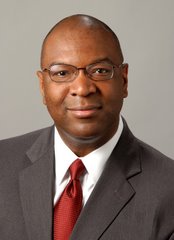
I spent last week, which was my birthday, as a panelist at a conference in Atlanta on health and urban blight. The goal of the event was to develop tools to aid community based organizations (CBO’s) that are on the front-lines in the war to protect the quality of life of the most disenfranchised. Several topics were addressed, from HIV/AIDS to the persistent and growing decay of our inner-city communities. My focus was on those aspects which "uglify" a city. Living and working in South Memphis has given me a perspective on why neighborhoods progressively decline and the tipping point where even the most committed resident regrettable gives up.
At the core of the issue is how local government perceives its purpose. Why does local government exist? What is its function? Is it more reactive or proactive? These were some of the questions we were trying to answer when looking at our own city governments.
During the conference I stayed in the Buckhead district. This is a prosperous area just outside of Downtown Atlanta. Buckhead has more skyscrapers than the entire city of Memphis. To the original issue of local government being more proactive I see the key to this being done by developing those leaders on the ground. This would be people and community efforts that are connected to city government through contracts and oversight committees, but still maintaining a sense of independence. The Center City Commission for Downtown Memphis is the closest example I can think of. On this point Atlanta has been very progressive. It is one of three cities designated by the Annie E. Casey Foundation as a civic site, a place where the Foundation has a long-term commitment to improving the futures of at-risk children and communities.
When then mayor Herenton proclaimed that the year 2000 was the start of, “The Decade of the Neighborhood” I applauded. I liked the length of time because you need about ten years to make a real civic change. The focus was on the building blocks of a city - the neighborhoods and it came in a form of a declaration from the highest office in the City. Well the decade is about over and truthfully I had hoped for more.
So what went wrong? The problem as I see it is that there is a fundamental disconnection when it comes to working with communities and community residents. City officials are often reluctant to make the long term investment due to a lack of understanding of the importance of grassroots involvement. Memphis’ leaders are more focused on control. Power is horded and the price we pay is that the best and the brightest become disillusioned and leave for more progressive cities.
There needs to be greater financial investment in grassroots organizing. Those committed residents in South Memphis, North Memphis, Midtown, Whitehaven, and other areas of Memphis should be brought to the table, not only as advisers, but as partners in moving our great city forward.
I have just signed an agreement to have the Casey Foundation locate the Opportunity Passport project here in Memphis. This project will support civicness and financial growth for our youth. If we want to change our city for the better it will take leaders willing to take chances and work to engage our citizens.
That’s my view, what’s yours?



6 comments:
Agreed. Much of the problems of Memphis stems from lack of voter education. You can't have good elected representatives if the voters don't know who they are, and when we get bad leadership the last thing they are going to do is put in place efforts to educate the public.
MEMPHIS HAS GONE DOWNHILL. THEY NOW HAVE TO SEARCH YOU BEFORE YOU CAN GET ON BEALE STREET.
Reginald:
I think you have a very admirable goal. It's hard to imagine a more noble one. Unfortunately, you're right about our local politicians having more interest in power than in good governing.
The example you used of the Center City Commission is all about development and business and doesn't address human issues. The city has been used as a way for some politicians to enrich themselves from it. For instance, the $91,000 dollars pocketed by the mayor from the bus terminal deal would do a lot towards fighting the decay you talk about.
Maybe you could bring the values of humanizing the city back into focus if you were a county commissioner instead of using it like a cash cow as some others do.
Did anybody catch that HBO special on Marion Barry? Here you had a mayor that was a womanizer, drug users, had questionable business dealings and was ripping D.C. apart racially and economically. What did the blacks do? They put him back in office time after time. They were sticking it to "The Man". The only people getting stuck was the blacks who were stuck in poverty. When will blacks wake up and realize it's not white people but your own people destroying you. Mr. Milton if you want to be the next County Commissioner you need to stop developing services for the community and being a decent person. You need to start doing drugs and stealing that's the only way you can get elected in Memphis.
11:00 a.m. makes some good points. It's all about making certain people rich, back room deals and keeping the power.
This isn't about Memphis, or Black people or White people. It's about the haves and have nots. Until people understand this nothing changes.
Runs for a fifth term;
Says I'll leave if I can be Superintendent;
Says I'm staying;
Says I'm quitting;
Says I'm staying;
Says I'm quitting to run for Congress;
Says I'm not leaving yet;
Leaves - THANK GOD!
Picks up petition for mayor.
No, even Marion Barry wasn't this bad.
Post a Comment